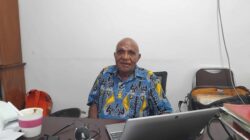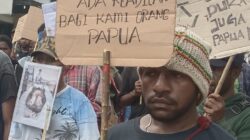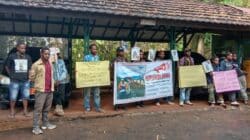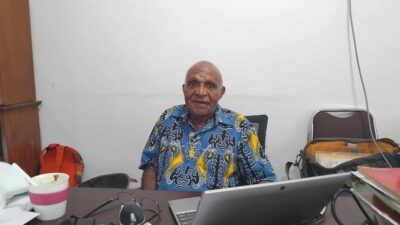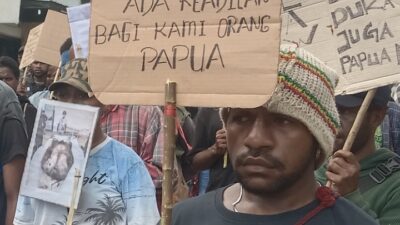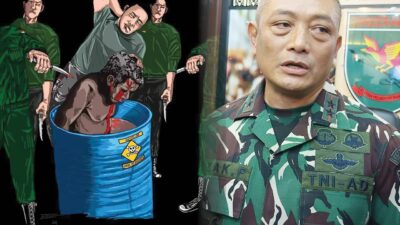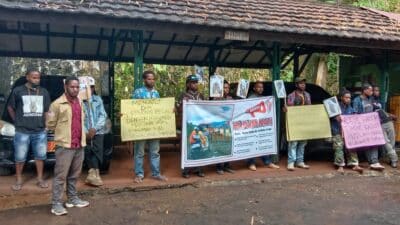Jayapura, Jubi – A number of rights NGOs comprising KontraS, YLBHI, Amnesty International Indonesia and the families of the victims of the Bloody Paniai case (7 – 8 December 2014) highlighted many irregularities in the investigation of the case by the Attorney General’s Office (AGO).
The investigation, which began on December 3, 2021, is considered to have caused confusion due to the use of the term “general investigation” which is not stated in Law No. 26/2000 regarding Human Rights Court nor the criminal procedure law in Indonesia.
“We are monitoring the process through public channels of the AGO and the media. According to Komnas HAM, there are a number of things that must be addressed in the investigation to the case that killed four teenagers and injured at least ten people,” said Tioria Pretty, the Head of Impunity Monitoring Division of KontraS in a written statement received by Jubi on Monday, March 28, 2022.
According to at least eight press releases made by the AGO from December 2021 to March 2022, 61 people consisting of civilians and members of the Indonesian Military (TNI) and police have been questioned by AGO investigators. The process took place in at least three locations, namely Jakarta, Papua, and West Sumatra.
However, based on the credible information Jubi received, there has been no communication from the AGO to the victim’s family or their lawyers to date. Whereas in the criminal justice system for gross human rights violations, ideally, the Prosecutor is a defender and companion for victims to achieve justice.
KontraS, YLBHI, and Amnesty International Indonesia all agreed that the AGO had yet to exercise its authority to appoint ad-hoc investigators from the community as stipulated in Article 21 paragraph (3) of the Human Rights Court Law. The ad-hoc investigators must be the one with a proven track record of working for human rights and has victims’ perspectives.
This step is important to make the investigation participatory and independent in order to obtain and use the best evidence in the ongoing judicial process. The time limit for investigation of gross human rights violations as stipulated in Article 22 of the Human Rights Court Law must also be considered by the AGO so that the next process (the prosecution) can proceed effectively and properly according to the values, principles, and provisions of law and universal human rights.
“Looking at the Human Rights Court process for three other gross human rights violations, namely the Abepura case, the Tanjung Priok case and the Timor Leste case only presents doubts for the victim’s family and also the public,” Tioria said.
The three NGOs not only criticized the lack of coordination between the AGO and the families of victims but also the AGO’s weak indictments as seen in current and previous cases. The AGO has failed to hold those in the chain of command accountable, it only named one field actor suspect and therefore, cut off the accountability of policymakers for what happened at Paniai in 2014.
Civil society groups suspected the AGO was also not optimal this time during the investigation into Bloody Paniai. Not to mention the fact that only one out of the 15 gross human rights violations whose status elevated into investigation during nearly eight years of President Joko Widodo’s leadership. This makes the doubts of the victims’ families valid.
The families of the victims of the Paniai case also expressed their doubts that the current law enforcement process could lead to justice. They said there had been too many unresolved cases of violence by security forces in Papua, such as the Dogiyai case which killed two people (Dominokus Auwe and Alwisus Waine) in 2011 and the murder of Pastor Yeremia Zanambani in 2020.
Apart from the Paniai case, there are several other serious human rights violations that have occurred in Papua. These cases have not yet been advanced to the investigation stage despite presenting sufficient preliminary evidence, including the cases of Wasior 2001 and Wamena 2003.
The human rights situation in Papua continues to decline throughout the years. Instead of fulfilling Papuan people rights, the government keep using a security approach to Papua’s problems that often turns into violence.
The massive deployment of TNI personnel, the operation against the West Papua National Liberation Army (TPNPB) that made civilians victims, residents who had to live in evacuation camps, racism, murder, and various other human rights violations are situations experienced by Papuans on a daily basis.
Therefore, the victim’s family together with the three NGOs urged the Attorney General’s Office to appoint an ad-hoc human rights investigator from the community who has the capacity in the field of human rights and side with the victim to participate in the investigation of the Paniai case.
The people also asked the AGO to hold several high-ranking TNI and police officials responsible for the Paniai case, and Jokowi to stop the human rights violations in Papua by changing the security approach to dialogue that upholds human rights. (*)



